19, February 2020
Roman Catholic Bishops urge Biya to hold peace talks with Ambazonians 0
Bishops from around the world have signed an open letter to the Cameroonian president asking that he participate in proposed peace talks meant to bring an end to conflict between the government and Anglophone separatists.
“We are motivated by our concern about the suffering of unarmed civilians, and the stability and prosperity of Cameroon,” 16 bishops from outside Cameroon wrote in a Feb. 17 letter coordinated by the Global Campaign for Peace and Justice in Cameroon. Bishop Thomas Zinkula of Davenport was among the signatories.
“We believe the proposed Swiss-led talks offer the best path to an appropriate political solution through inclusive negotiations,” the bishops continued. “The success of these talks will be critical in Cameroon’s journey towards ensuring peace and your legacy as an effective leader in a troubled region. It is our sincere hope that all interested stakeholders will join these talks and show a spirit of cooperation, pragmatism, and realism to ensure these negotiations succeed.”
They added that “only true peace will allow Catholic dioceses, clinics, and schools to once again minister safely to the blessed congregants and citizens of Anglophone Cameroon.”
The Cameroon crisis is rooted in conflict between the English- and French-speaking areas of Cameroon. Unrest has been ongoing since 2016, when the country’s Anglophone community began protests to demand the return of federalism after the government increased the use of French in schools and courts.
Some 3,000 people have died since the fighting began. According to the UN, there are an estimated 679,000 internally displaced people in Cameroon, and 60,000 Cameroonian refugees in Nigeria.
At least 600,000 children have been unable to attend school in the Anglophone Southwest and Northwest Regions, with most schools having been shut down.
The bishops told president Paul Biya, who has ruled Cameroon for 37 years, that “there will be no military victory for any side. A lasting solution to Cameroon’s problems must come from a mediated process that includes Anglophone armed-separatist groups and non-violent civil-society leaders. If all parties treat each other as they wish to be treated, a solution is possible.”
They noted that a Major National Dialogue held in October 2019 was laudable, but had not stopped the violence.
The dialogue had proposed that the Anglophone regions be given greater self-government, and the elction of local governors. In addition, Biya had ordered that charges against some 300 people held in connection with the Anglophone conflict be dropped, and opposition leader Maurice Kamto was released after nine months of imprisonment.
At least 22 people were killed in an attack on Ntumbo, a village in the Northwest Region, Feb. 14. Separatists blamed the government for the attack, but the government has denied involvement.
The area that is now Cameroon was a German colony in the late 19th century, but the territory was divided into British and French mandates after the German Empire’s defeat in World War I. The mandates were united in an independent Cameroon in 1961.
There is now a separatist movement in the Southwest and Northwest Regions, which were formerly the British Southern Cameroons.
Cameroon held parliamentary elections Feb. 9, which the local bishops noted took place in a calm atmosphere, but with low turnout.
The Cameroonian bishops noted that “four months after the holding of the Major National Dialogue, which proposed solutions for ending the crisis” in the Anglophone reigions, “we are still not satisfied with the situation in these regions.”
They added that “insecurity persists in spite of everything and has prevented many citizens living in these areas from exercising their civil rights.”
Source: Catholic News Agency


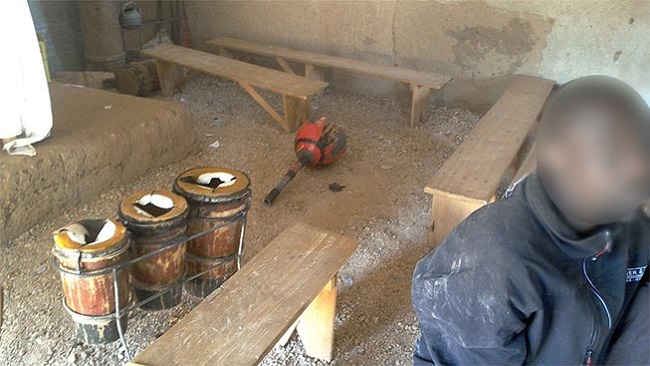
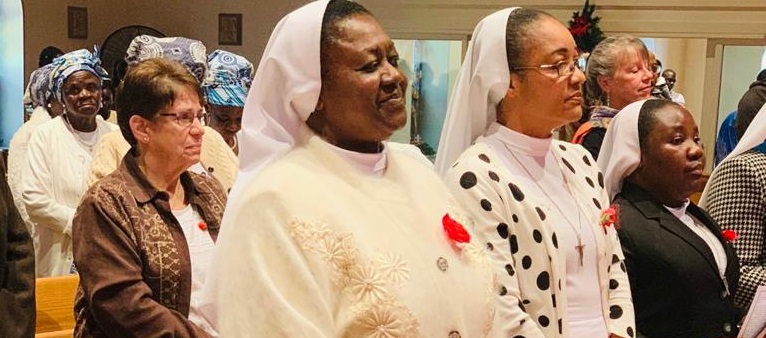
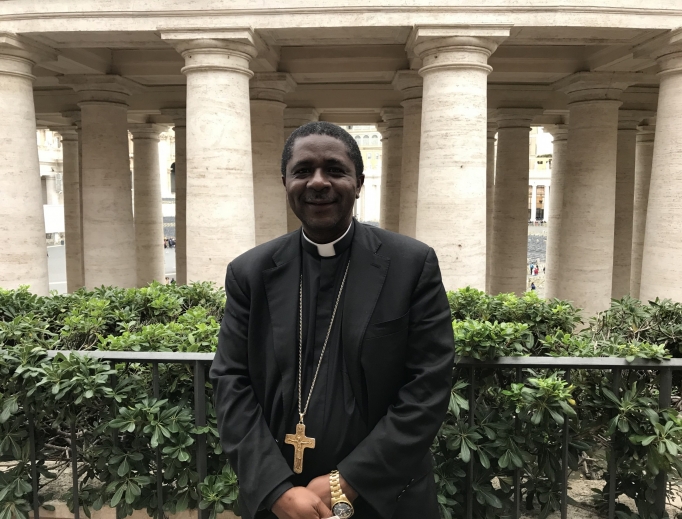
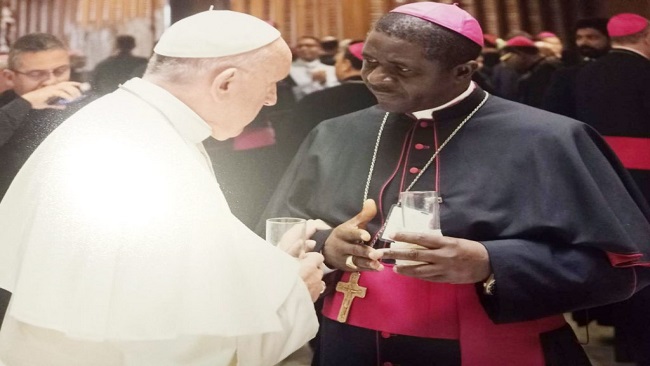
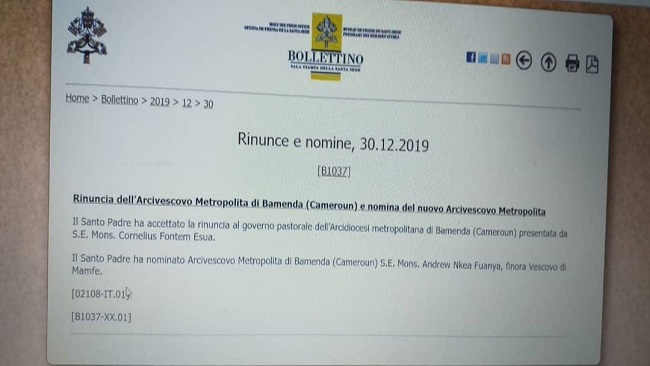
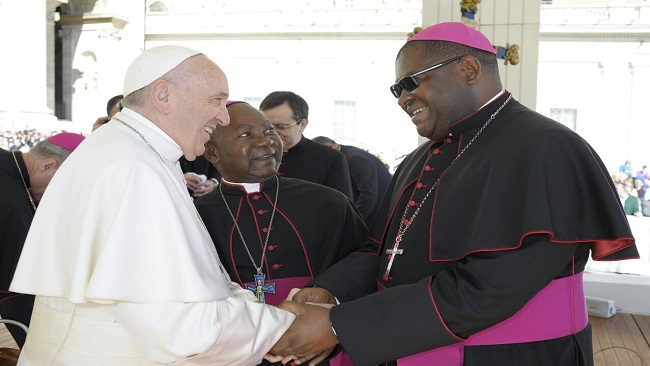


















27, February 2020
A plea from Southern Cameroons: “Take up our case to God” 0
A pastor has shared firsthand information regarding a dire situation in Cameroon. The pastor’s name and other details are being withheld in an effort to increase security yet still communicate candidly.
No civilian in Bamenda, Cameroon is safe any longer, he reported: “No protection from the military, no protection from the so-called freedom fighters. The situation is such that both military and militia are fighting against the innocent population.”
He further reported that, early each morning in one corner of the town, the militia attacks and kills people, claiming they are supporters of the government. “Then they will shoot, burn and run away,” he said, but a few minutes later, the military will appear at the scene. “They will accuse the same harassed population on the claim that they are hiding and aiding the militia,” he described. “Then a new process of killing and burning will be done now by the military.”
People are still managing – sometimes – to go to church, he reported, but during a recent worship service, the militia came in and stopped the service by beating up Christians and shooting some. “Then we all ran away back home,” he said. “We are only saved from above.”
The church is under serious attack, he continued. “Pastors are beaten daily to near death by both parties,” he said, asking for daily prayers. “But I and others are trying daily to push through and be a help to the broken.”
Their ecumenical bond is strong, the pastor said. “We are bound to work together,” he said. “How united can the church become in the bad times?”
Differences in doctrine seems to melt away in the smell of gun powder and in the face of the pellet, he added. “So please…take up our case to God. Sing for our God to forgive us and bless even the souls of those we will lose today or tomorrow,” he said. “Pray for us trying to brave it and help others who are already broken.”
“Pray for government without a heart or pity in Cameroon. Above all, pray for the return of peace, schools, life and blessings in Cameroon.”
Culled from World Council of Churches